
Abdul Rahman Al-Dakhil
Today we will talk about a character who crossed despair and made what we consider impossible until he made it and became a beacon that illuminates the darkness of despair and gives us hope for a bright tomorrow. With willpower, perseverance and strength of determination, nothing is impossible.
Imagine with me if one of the people told you that a person alone is an orphan, the father is shraid, whose blood is permissible. Whoever leads him will take a big reward, and whoever covers him will be killed. Soldiers of the caliphate state seek after him from the far east to the far west. This person is the creation of a strong state. Will you believe this person?! !
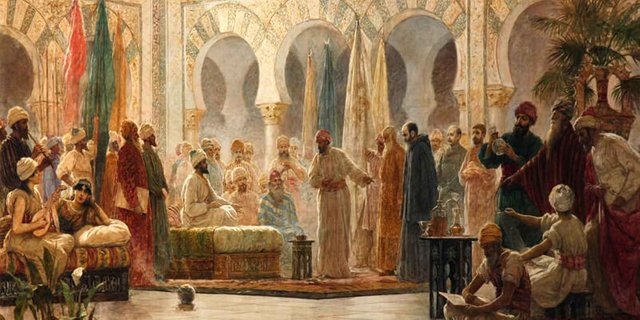
Yes, and what a wonder we will believe, this is what history tells us
He is Abd al-Rahman ibn Muawiyah ibn al-Umayyad caliph Hisham ibn Abd al-Malik, known as Abd al-Rahman al-Dakhil or Abd al-Rahman al-Awal or the falcon of Quraish, the owner of Andalusia.
When you meet a rich personality whose life is full of events, you are confused where to start
Let's start from the beginning of any human being
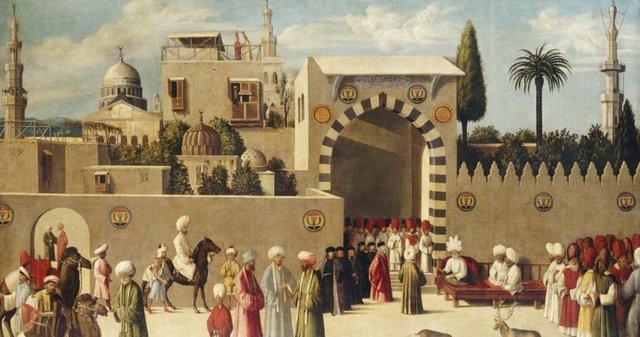
Abd al-Rahman and his nickname Abu al-Mutrif was born on the 5th of Ramadan in the year 113 AH, al-Muwafaq, on March 7, in the year 731 CE, in the house of the caliphate during the reign of the grandmother of Caliph Hisham ibn Abd al-Malik.
The closeness of Hisham’s grandmother to him confirming a prophecy made by Musailima bin Abd al-Malik that after the demise of the Umayyad king in Damascus, a state would be established for them by Abd al-Rahman in Andalusia.
After the Battle of Al-Zab and the defeat of the Umayyads at the hands of Abu Musaylamah Al-Khurasani, the Caliph Marwan bin Muhammad, the last of the Umayyad Caliphs, fled and was killed after that in Egypt, the Umayyad Caliphate fell and the Abbasid Caliphate was established at the hands of Abu Al-Abbas Al-Saffah. Omar Abd Al-Rahman was nineteen years old
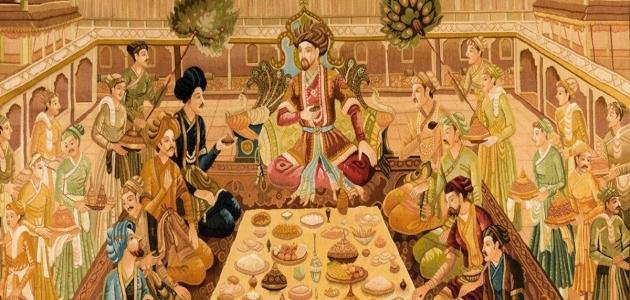
Here begins the most difficult period of his life
Imagine with me the prince, the stepson of the world's palaces, a right-handed king who turns overnight into a stray fugitive who is not even safe from his life
The life of displacement, anticipation, flight and fear of death began, and this is the case of all the Umayyads after the fall of their state
As soon as the Abbasids managed to rule, they released their hands in the blood of the Umayyads in retaliation for what their workers had committed killing and mutilating by order of them in the House of God, may God be pleased with them, and the most famous of them was the massacre of Karbala and the martyrdom of Hussein, may God be pleased with him
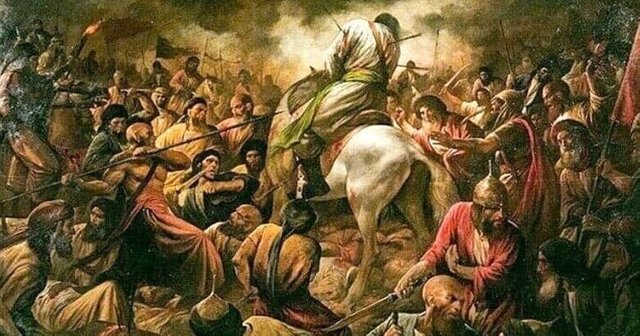
He spent six years traveling from Damascus to Palestine to Egypt, passing through the Libyan desert to Kairouan, passing through Algeria to Morocco, and even across the Mediterranean to Andalusia.
It was a useful period for him as difficult as it was with the sword hanging over his neck at any moment.
He went out from the palaces because of the hardship of living, and from the abundance of friends, companions, servants, and decency to unite in the desert and the desert
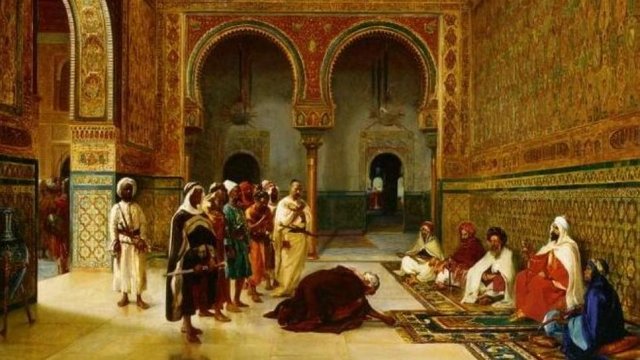
I think that this period of his life had the greatest impact on him and made him after that close to the parish, eager to get closer to them.
When Abd al-Rahman arrived in Morocco, he sent the servant of Badr to Andalusia to find out the news and reconcile the hearts of the Umayyad loyalists and take from them covenants and trusts for Abd al-Rahman.
And an alliance with the Yemeni
And Andalusia was divided into Yamaniyah and Quesa, and the wars were disputed between them, so Abd al-Rahman crossed them on a ship in the year 138 AH and landed in the cities near the coast and gained the support of the residents there, and an army of three thousand men gathered for him. Victory over all of Andalusia
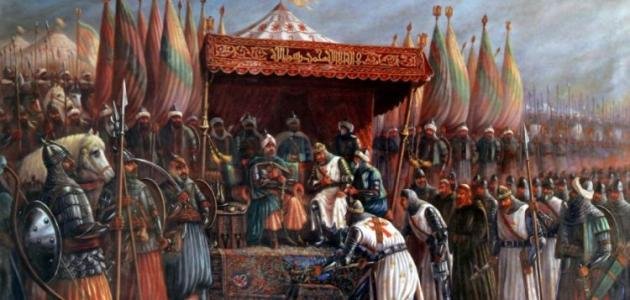
Despite the flight and flight of the Abbasids, and the disease of ophthalmia, which stopped them from fighting, he proved in his wars in Andalusia that he was skilled in fighting and in managing the affairs of government.
He conquered Cordoba and made it the capital of Andalusia in 141 AH
He ruled for 34 years (from the year 138 to 172 AH), and 25 revolutions took place against him, and he was able to eliminate them all